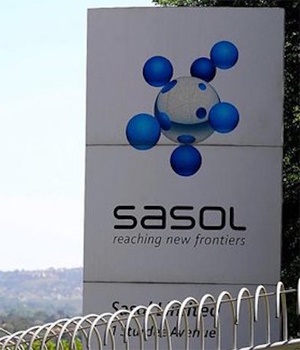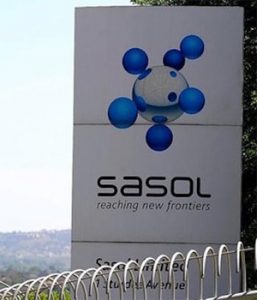
- By: News
- 0 comment
- Energy and chemicals company Sasol has revised its target to reduce greenhouse gas emissions by 30% for the year 2030 – up from 10% previously.
- This is expected to require capital spend of between R15 billion to R25 billion, according to its chief financial officer Paul Victor.
- The group will not be investing in new coal projects, and plans to replace coal feedstock with gas according to its new vision for a decarbonised future.
Energy and chemicals company Sasol plans to reduce its greenhouse gas emissions by 30% by the year 2030, according to its CEO, Fleetwood Grobler.
During a media briefing on Wednesday, Grobler shared the group’s strategy for a more sustainable business by 2050. This involves stopping investments in new coal projects, bringing renewable energy on board to power its operations and launching a new business unit solely dedicated to sustainable solutions.
The company is one of two major emitters of sulphur dioxide in the country – the other being Eskom. Sulphur dioxide causes respiratory problems for many people.
But on Wednesday, Grobler pledged the group’s commitments to developing a low-carbon economy and supporting the objectives of the Paris Agreement on climate change.
Among Sasol’s ambitions is to reach net zero emissions by 2050. This is to be achieved through the decarbonisation of assets, the introduction of energy efficiencies, investments in renewables – Sasol is procuring as much as 1 200 MW – and shifting to using natural gas as a feedstock for operations as opposed to coal, particularly for the southern African value chain, Grobler explained.
There is also an option to use green hydrogen and other carbon-capture technologies, once these technologies become more cost-effective over the next few decades, he added.
The group has stepped up its scope 1 and scope 2 greenhouse gas emissions reduction target from 10% previously, to 30% – particularly related to its energy and chemicals businesses. Sasol has also introduced an energy business scope 3 target – the target is for a 20% reduction in absolute emissions by 2030.
Grobler said that up to 2030, approximately 10% to 15% of capital will be spent to achieve the greenhouse gas emissions targets. After 2030, a more significant portion of capital will be used to achieve net zero emissions. Executive compensation will also be linked to the delivery of these targets, he added.
Chief financial officer Paul Victor said that R15 billion to R25 billion will be spent particularly to achieve the 30% emissions-reduction targets. Funds will be spent on gas transition and energy-efficiency projects being launched in Secunda, he explained. “That will assist in us reducing our coal dependency.” As for scope 3 targets, Victor said Sasol’s export coal mine will be reaching the end of its life and Sasol has no plans to extend its operations, which will contribute to reducing emissions in that regard.
New business
Last year, Sasol reorganised itself around two core businesses: energy and chemicals, Grobler said.
A third business – Sasol ecoFT – will be launched with a specific focus on sustainability solutions such as green fuels for aviation or green ammonia for agriculture and other industries, Victor told Fin24. “Green ammonia for green chemicals and green jet fuel for green aviation – more industries will come,” he added.
These products will be developed over the long term. But Sasol plans to develop a proof of concept for green hydrogen in its own business and have the first pilot going by 2025, Victor said. The development of these products will require partnerships, he said.
Sasol is also optimistic of its chemicals plant Lake Charles. The plant in the US was officially completed late last year. Grobler said that Lake Charles is a big part of Sasol’s long-term strategy, serving as an international growth hub, alongside Secunda. There is also potential to “green up” the chemicals portfolio, he added.
SOURCE:



